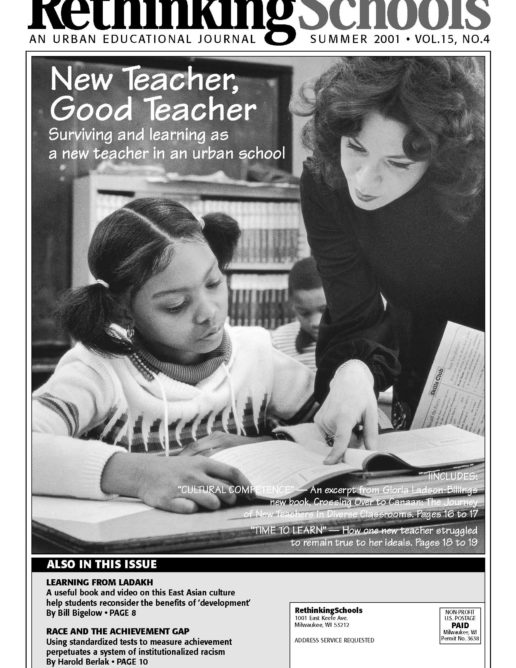Preview of Article:
Learning to Read – ‘Scientifically
President Bush's education blueprint emphasizes money for reading instruction, but only if it is "scientifically based." What might that mean?
The reading education Bush has in mind can be gleaned from remarks made in 1996 when he advised Texas teachers to get “back to the basics” — that is, return to traditional education that focuses on basic skills, basic facts, and a traditional curriculum, and reject all classroom reforms that include children’s perspectives and thereby reduce the authority of the teacher.
“The building blocks of knowledge,” Bush explained, “were the same yesterday and will be the same tomorrow. We do not need trendy new theories or fancy experiments or feel-good curriculums. The basics work. If drill gets the job done, then rote is right.”
Although advocates of what is now being called “scientifically-based” reading instruction might take issue with the “rote” comment, Bush accurately described the essentials of this teaching. “Trendy” is code for whole language, cooperative learning, meaning-emphasis learning (reading instruction that stresses comprehension and teaches skills as part of students’ reading for meaning), and critical literacy (reading instruction that examines and questions values, assumptions, and ideologies in written material) — that is, anything that is an alternative to the “basics.”
“Basics,” meanwhile, is code for beginning reading instruction that emphasizes exclusively the explicit, direct, and systematic instruction of skills and minimizes the need for meaning and comprehension until the skills are learned. Under such an approach, teachers follow preestablished reading programs that move children through a step-wise process from small parts of language to larger ones. While advocates of this instruction insist it is “balanced,” that is, instruction balances reading for meaning with learning skills for reading, a close look reveals that the comprehension end of the seesaw remains close to the ground for a long time.
THE SCIENTIFIC ARISTOCRACY
Demands for “scientifically based” reading education precede the current legislation. Since the mid-1990s, reading research funded by the National Institute of Child Health and Human Development (NICHD), a branch of the National Institutes of Health, has been identified as the scientific gold standard justifying scripted skills-emphasis instruction (that is, instruction using a reading program that has prescribed, sequential lessons that teachers and students must follow). The “Chief” (actual title) of the reading research division, Reid Lyon, has been a persistent spokesman for scripted instruction in policy hearings across the country. Lyon and NICHD-supported research-ers have usually had an easy time doing so because alternative views at these hearings have been few, if any. Lyon has been a chief adviser to Bush and Secretary of Education Rod Paige, and could become, as the Baltimore Sun reported, “the administration’s reading chief.” In the Bush reading legislation, the reading division of NICHD is included in the processes for disseminating information about the reading legislation, for setting standards for “scientific” research, and for reviewing and judging applications.

